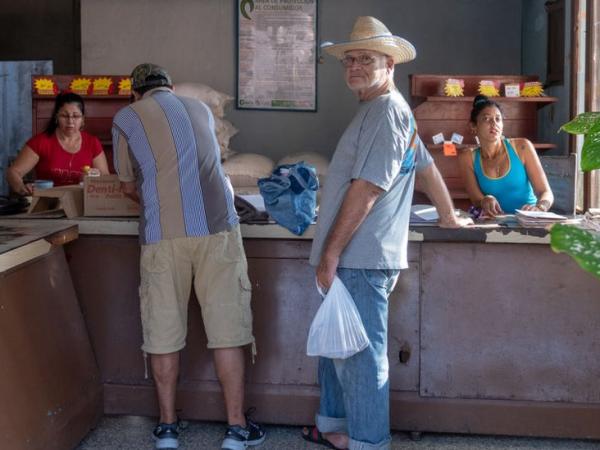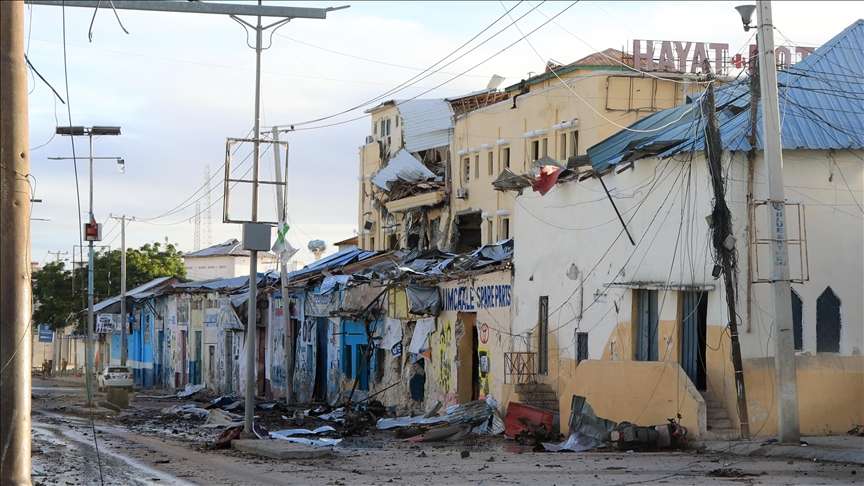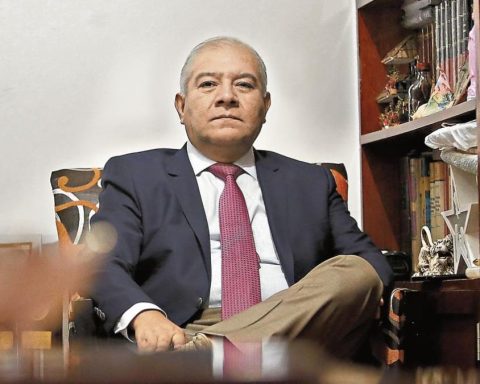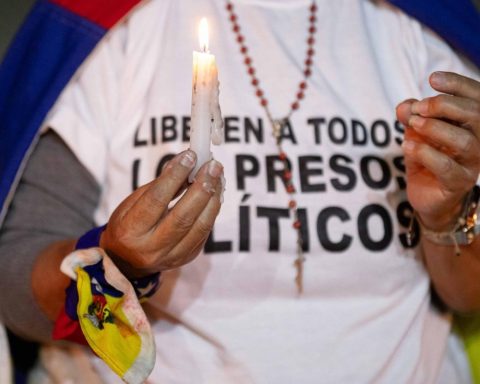Cuba is a country very different from the rest, especially in trade.
There are no shopping centers, supermarket chains or franchises of local and international brands as in the rest of the Latin American continent and much of the world.
All purchases and sales in retail and wholesale establishments, as well as exports and imports, are subject to the exclusive control of the State.
But the state is practically bankrupt.
Thus, supermarket shelves are almost empty and getting food or toiletries is a daily odyssey for a large part of the population.
The few clothing, electronics or appliance stores lack supply, so these and other products arrive on private trips and are sold on the parallel market at inflated prices.
After countless unsuccessful economic reforms, the government of President Miguel Díaz-Canel has announced an important step to try to alleviate the situation.
In September wholesale and retail trade will be opened to foreign investors for the first time in more than 60 years, the government said this week.
The measure comes at a time of extreme difficulty for Cuba.
The shortage of food, toiletries and medicine is becoming more pressing, to which has been added an energy crisis with constant blackouts and an exodus of more than 100,000 people, including many young people, to the US and Europe.
Citizen discontent is increasing: the government lacks the resources to supply them with the basic basket and buying any item is increasingly difficult even with money.
In addition, the country’s production is low, among other reasons due to the lack of machinery, parts and supplies necessary for agriculture and industrial production.
That is why it has decided to let foreign companies into trade, a key sector of its centralized economy.
“Allowing a foreign company to participate in retail trade is a step forward, because until now it was prohibited,” Cuban economist Omar Everleny explains to BBC Mundo.
In the wholesale sector, foreign companies would sell the necessary inputs to improve the country’s depressed agricultural and industrial production, according to the government’s plan.
And in retail, they would focus on supplying the population with basic products.
“It will be promoted that they be destined fundamentally for the sale of raw materials, supplies, equipment and other goods that contribute to promoting the development of national production; and the supply of food, cleaning, economic line products and for the installation of systems generation of electricity with renewable energy sources,” explains the state newspaper Granma.
The Cuban government indicated that in a first phase the sales of foreign companies in Cuba will be in foreign currency.
This means that Cubans who do not have access to dollars -in general those who do not receive remittances from their relatives abroad- will not be able to buy the products and supplies that are offered.
This has already been happening in Cuba, where since 2020 the State has been selling a large part of the food, basic products and even medicines in hard currency, which has left many people in a situation of extreme vulnerability.
Foreign companies will not operate freely in the country: they will be obliged to do so together with the Cuban State, mainly in the form of joint ventures.
In this type of company, common in the tourism sector, the Cuban government usually holds a stake of just over 50%.
The Cuban authorities stressed, in fact, that this opening does not mean the end of the state “monopoly” on trade.
And how could this association work?
“The foreign party would bring the products, while Cuba would manage the workers, the warehouse and the transport, and the profits would be shared more or less in half,” Everleny anticipates.
The economist Pavel Vidal, an associate professor at the Javeriana University in Cali (Colombia), believes that Cuba could take advantage of the infrastructure of the current network of supermarkets and state stores in foreign currency.
“It may happen that a chain begins to put its brand and supply some of those stores. In a joint venture, the Cuban side would provide the infrastructure that already exists, the personnel that is there, and the foreign chain would come with its brand, would bring supplies and financing”, he points out.
In any case, both are hypotheses. It is difficult to guess how this measure will be applied in practice.
Economists have begun to cast some doubt on its viability.
The first is, will there be companies willing to invest in the Cuban commercial sector?
“There will always be risky investors, and in the Cuban market there are many opportunities because everything is lacking. I imagine there will be proposals,” says Vidal
However, it highlights three problems that could deter potential investors, the first being the cumbersome bureaucracy that would entail.
“If a supermarket chain wants to enter Cuba, it will have to go through a very complicated path of permits, bureaucracy, authorizations…”
In general, the strict control of the State over the economy could discourage many investors, according to economists.
The second barrier would be the insolvency of the Cuban State, which owes several billion dollars to suppliers and that is precisely why they have stopped supplying it with products.
“Cuba has many debts that it has not paid since 2019. That the businesses that enter are protected from government defaults is something that should be considered,” he says.
The authorities announced that at first “there will be no competition” in the market and they will give priority to companies that have been based in Cuba for several years.
But it is precisely to these that the State owes important sums, so it is not clear if they will decide to venture into new projects with their insolvent debtor.
Third, Cuba has a serious monetary problem: its economy is increasingly dollarized and its local currency, the peso, has no international value and has reduced its value to a fifth of that of the US bill in the last year and a half.
“It would be necessary to negotiate the exchange rate and how the profits of that investor are going to have an expedited route to leave Cuba, which has always been a problem,” says Vidal.
Economist Everleny also raises some doubts about the feasibility of the new initiative.
“The financial problem arises: how to pay, with what currency, at what exchange rate. If you sell in Cuban pesos, the prices would be very high. And is the State going to exchange them for foreign currency for companies to send abroad? Or are you going to authorize them to sell directly in foreign currency? If so, there is already a contradiction.”
What everyone agrees on is that the success or failure of the measure cannot be determined in the short term.
“There won’t be many results in the coming months, because they are measures that will take time to really consolidate,” says Everleny.
“We are going to wait for one or two months to pass, to see how many companies arrive.”
Remember that you can receive notifications from BBC News Mundo. Download the new version of our app and activate it so you don’t miss out on our best content.

















